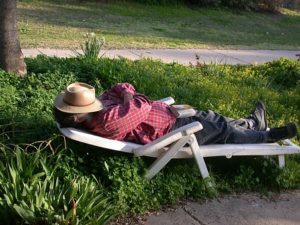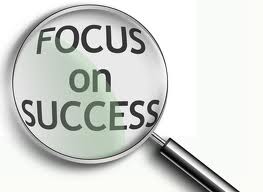 Are you working longer and harder but accomplishing less? One of the great ironies of our times is that the more we learn about the importance of uninterrupted focus in human performance, the more distractions and interruptions we face on a daily basis.
Are you working longer and harder but accomplishing less? One of the great ironies of our times is that the more we learn about the importance of uninterrupted focus in human performance, the more distractions and interruptions we face on a daily basis.
Voice mail. Email. Telemarketing. Spam. Tweets. Snapchats. Texting. Instant messaging. Popup ads wherever we go on the Internet. Mobile applications that incessantly push information to our smart phones all day long. All of which, according to recent research, is diametrically opposed to superior results on the job.
In his new book, Rest: Why You Get More Done When Your Work Less, researcher and author Alex Soojung-Kim Pang <https://www.scientificamerican.com/article/q-a-with-alex-soojung-kim-pang> argues that a well-rested brain is an essential component for creativity and high performance. In fact, he believes that sleep, naps, play, and exercise significantly improve our ability to perform.
I’ve been talking for years about the need to recharge and re-energize our brains to win in business. Even so, some of Pang’s findings caught me by surprise.
The 4-Hour Workday?
As the pace of business goes ever faster, we have come to believe that we must work harder and longer to keep up. We’ve also bought into the myth of multitasking, even when multiple studies debunk it as impossible for the human brain, ineffective and detrimental to our health to even try.
When Pang studied some of history’s most creative and inventive people – such as Charles Darwin and the French mathematician Henri Poincaré – he found just the opposite. Although they devoted their lives to their work, they did not spend every waking hour pursuing it. In fact, they rarely spent more than four hours a day focusing on their primary work.
What did they do the rest of the time?
Nap. Take a hike in the mountains. Enjoy long walks with friends. Spend time with family. Sit around and think. In other words, park their brains in neutral and engage in restful and restorative activities.
I know what you’re thinking.
A 4-hour work-day in this day and age? Get real! I had a similar reaction to Pang’s findings as well. These days, it may not be possible to get everything done in four hours a day. But we can certainly learn from those who did, and apply their techniques in ways that support winning.
Rest Your Way to Success
According to Pang, highly successful people regularly engage in a type of rest he calls restorative activity. Most of us see rest as a passive activity. In contrast, highly creative people see “rest” as vigorous and mentally engaging, such as climbing a mountain or going on 20-mile hikes. They experience these activities as restorative because they offer a complete break from their normal working lives.
Another myth is the notion that our brains tend to shut down when we rest. In reality, they remain highly active when engaged in restorative rest. When we go for a stroll in the woods or a walk on the beach, our subconscious minds continue to work on problems. Moreover, they do it in a relaxed, restful state, which allows them to more easily explore different ideas and solutions. When a promising idea presents itself, the brain uploads it to the conscious level, so we can work on it with our full awareness.
The secret to restorative rest is making a regular activity rather than a once-in-a-while event. Highly creative people proactively build it into their daily schedules; often in short time increments, but enough to take advantage of the rested brain’s creative powers.
Think about it – how many times has a good idea or solution come to you while singing in the shower or just lying in the grass gazing up at the clouds? That’s your brain doing its best work in a state of restorative rest.
Whether working four hours a day will get it done in today’s complex world remains to be seen. But that shouldn’t stop us from building time into our daily schedules to rest and recharge our brains. Even small amounts of restorative activity can have a dramatic impact on our creativity and focus.
Here’s what I recommend. Start by scheduling time each day to set aside your cell phone, email and other distractions. Then:
- Go for a barefoot walk in the grass
- Let your mind play by doing brain teasers or mind puzzlers
- Read a magazine or blog that has nothing to do with your business or industry
- Participate in a yoga class
- Take up painting or learn to play a musical instrument
Restorative activity can involve just about anything unrelated to work that you find invigorating and mentally engaging. Even if it involves only 15 minutes a day, you’ll be amazed at the ideas that come percolating up out of your unconscious. You’ll feel more rested and alert. And you’ll get more done.
So what are you waiting for? Get out there and start resting!








